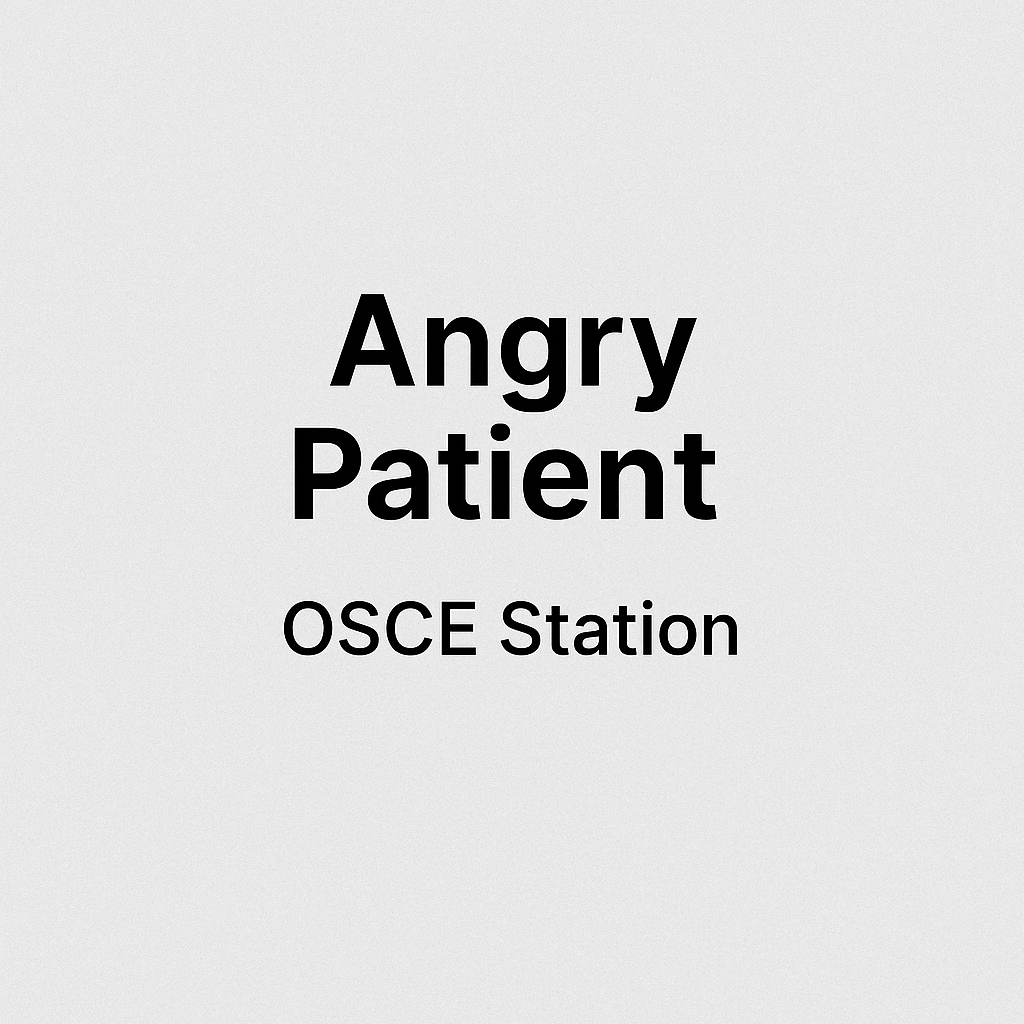MRCEM OSCE( Angry Patient )

MRCEM OSCE( Angry Patient )
aspects of approaching an angry patient in the MRCEM OSCE exam:
⸻
1. Safety First • Assess scene safety: Ensure you, the patient, and others are safe.
• Maintain a calm demeanor.
⸻
2. Communication Skills
• Stay calm and non-confrontational.
• Use open body language, maintain appropriate eye contact.
• Speak in a soft, empathetic, and respectful tone.
⸻
3. Acknowledge and Validate
• Acknowledge their feelings: “I can see that you’re upset…” • Validate their concerns without necessarily agreeing: “It’s understandable that you feel this way.”
⸻
4. Explore the Cause
• Ask open-ended questions to understand the source of anger:“Can you tell me what’s made you feel this way?”
⸻
5. Empathise and Apologise • Show empathy: “I’m really sorry this has happened…” • Offer a genuine apology if appropriate — even for their experience, not necessarily fault.
⸻
6. Offer Solutions
• Explain steps being taken to address the issue.
• Set realistic expectations and timeframes.
• Involve senior staff or PALS if needed.
⸻
7. Document Thoroughly
• Document the incident factually, including:
• What was said
• Actions taken
• Any escalation or referrals
⸻
8. Reflect and Debrief
• After the interaction, reflect and debrief with team if necessary. • Learn for future improvement.
By/ Khaled Khalifa
Consultant in Emergency Medicine
Manchester University NHS Foundation Trust
Wythenshawe Hospital


